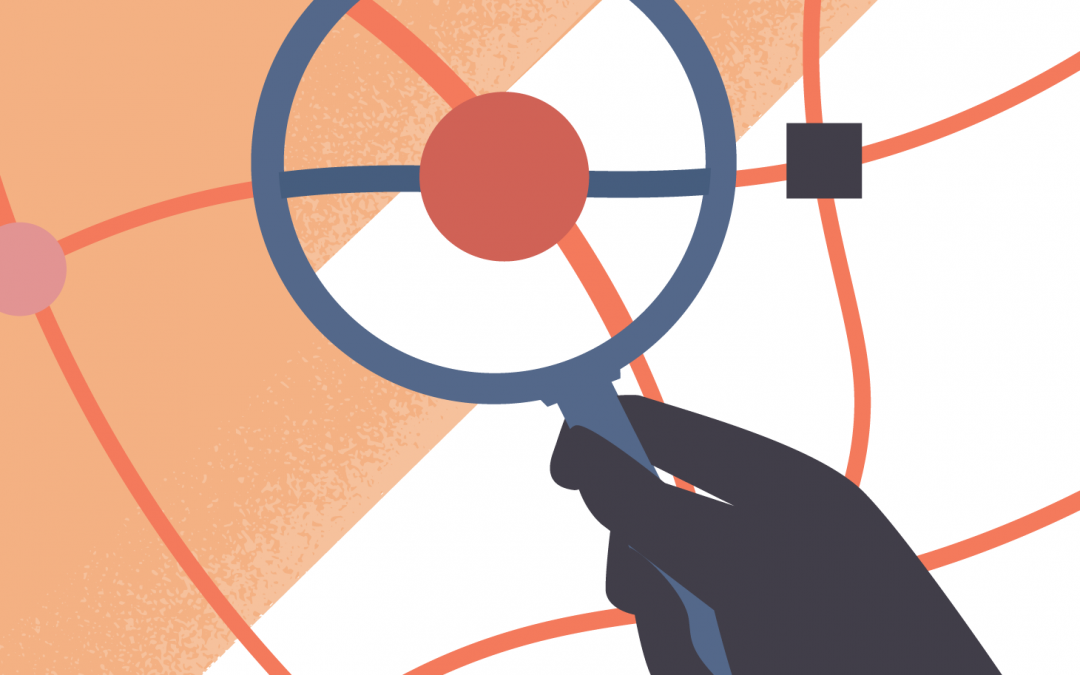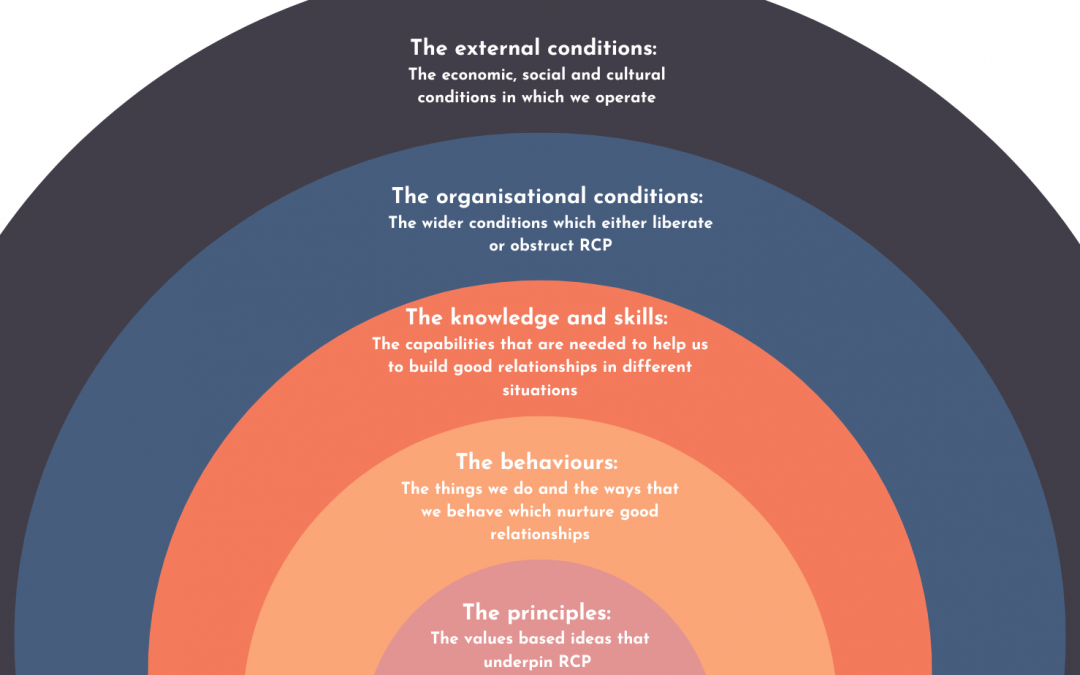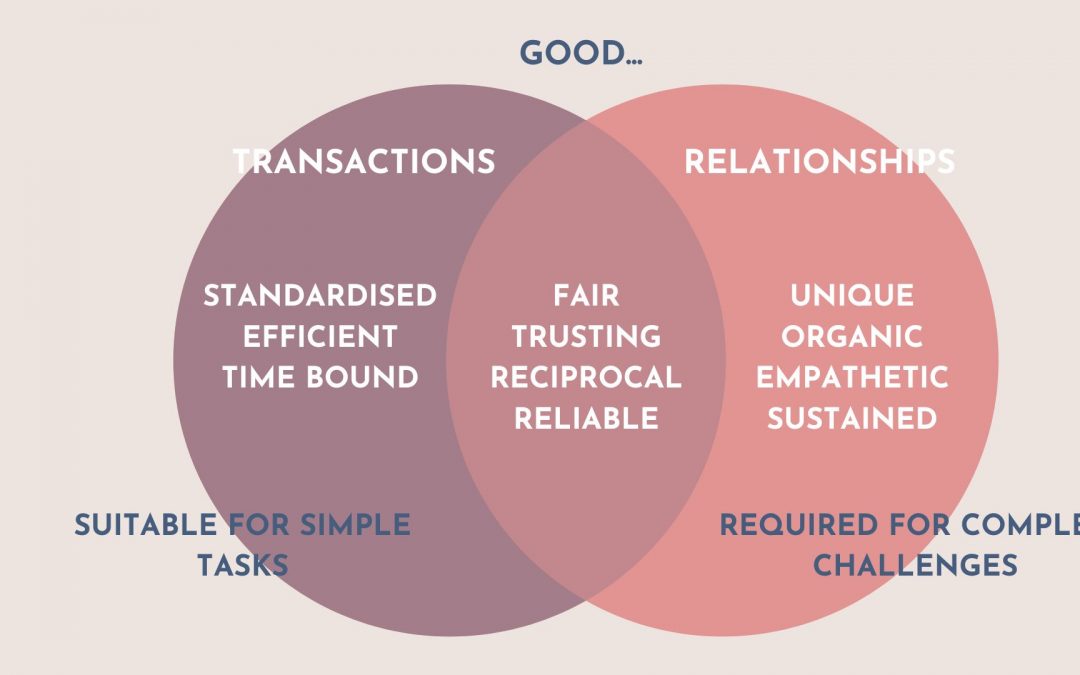
In brief
Bob Rhodes is the founder and President of LivesthroughFriends CIC, a social enterprise that demonstrates how those who have acquired the most complex reputations can live good lives when attention is paid to building relationship networks and a sense of purpose. In this blog, Bob shares a bit about their work in putting relationships first.
If you’d like to take the conversation about Rewilding Care further, Bob would be delighted to do so. Leave a comment below or send an email to bob@livesthroughfriends.org

Rewilding Britain
At Rewilding Britain, we define rewilding as the large-scale restoration of ecosystems to the point where nature is allowed to take care of itself. Rewilding seeks to reinstate natural processes and, where appropriate, missing species – allowing them to shape the landscape and the habitats within. It’s focused firmly on the future although we can learn from the past.
Rewilding encourages a balance between people and the rest of nature so that we thrive together. It can provide opportunities for communities to diversify and create nature-based economies; for living systems to provide the ecological functions on which we all depend; and for people to reconnect with wild nature.
A comparison struck me as I made my way home following the Citizen Network’s often exhilarating It’s Our Community event in Sheffield. I had spent a couple of days in the company of grassroots community organisations and peer support initiatives who exuberantly celebrated the impact that actively associating and taking personal agency had wrought in their lives. However, this was not a novelty to me – indeed I feel like I’ve witnessed that energy diminish over that past half-century. And I came away worried; not least because a significant number of the inspiring folk I had met expressed a simple faith that their example would change the system that they had not changed but rather disavowed.
In workshops and conversations I and others had sought to get people to think about:
- how professionals and services promote themselves as the prime solution to our ‘needs’, accentuating our dependency and diminishing our personal agency – as is inevitable and ‘normal’ within a market environment where service systems need and trade upon our perceived deficiencies.
- The importance of nurturing both strong and resourceful citizens, families and communities and local, enabling, skilled and complementary service systems.
- Hence, the fundamental importance of redefining the purposes and principles underpinning social services.
- The consequences of all-encompassing consumerism
- The ideological roots of the disintegrating system.
In hindsight, it is clear that such discussions are not at the centre of everyday conversations in most grassroots community groups. Pinching the strapline of Compass’s bi-weekly seminars, this is too “Bloody Complicated.” Indeed, one forceful leader looked at me aghast and said, “Do you mean this is political?”
As ever, people are preoccupied with getting by despite the system; rather than actively plotting revolution.
John McKnight put it this way:
Consumer society begins at the moment when what was once the province or function of the family and community migrates to the marketplace…
In adopting system life, people choose to yield sovereignty in exchange for the promise of predictability. Even families and communities turn over their sovereignty for the promise of a safe and predictable future.
In The Abundant Community: Awakening the Power of Families and Neighborhoods McKnight goes on to say:
Here is the rub: Systems that are constructed for order cannot provide satisfaction in domains that require a unique and personal human solution. They are unable to provide the satisfaction that they promise because of their very nature.
In short, the ‘promise’ is worthless.
So, on the train home, I mused upon keywords and straplines that we might use to generate conversations and facilitate conscientization. It struck me that, no matter how overwhelming the evidence throughout decades, ‘global warming’ repeatedly failed to grab widespread attention. However, people have got behind ‘climate change’ – perhaps because we experience and to some extent understand the weather and its palpable changes.
From there it wasn’t much of a leap to think about how the public understanding of the parallel ecological disaster arising from humanity’s self-interest and ignorance has unfolded. It has not taken too long, even for the most industrialised agribusinesses, for folk to get the message that getting out of the way and permitting nature to do what it does naturally is a powerful remedial strategy. ‘No Mow May’; field margins widened and left to their own devices; hedge planting; restored wild flower meadows; natural pest control with lacewings, ladybirds, or parasitic wasps; and wild corners in our gardens are all strategies familiar to casual viewers of Countryfile or Gardeners’ World. While most may not have progressed to considering the wild reintroduction of large free-roaming ungulates such as bison or top predators such as lynx and wolves, there’s a general understanding of the good sense associated with enabling nature to ‘have agency’.
For me, that rings a very loud bell. If we are to evolve a sustainable and truly caring society and effective and economic social services we, as was so clearly recognised by both Seebohm and Barclay Committees during the early years of Social Services Departments, must build upon the care that is naturally present in strong, resourceful and interdependent communities.
In pursuit of this, the challenge for Government is to restore agency to citizens and to design societal systems and social services that have their primary purpose in resourcing, supporting, and where necessary supplementing the relational, or associative, activities of families and communities.
This, of course, cannot be a top-down activity – hence the imperative to find an ‘imagery’ that is generally understood through which inclusive, democratic change can evolve.
I wonder then if ‘Rewilding Care’ has resonance?
When we talk to people about what really matters to them the universal answer is loving and reciprocal relationships closely aligned with a strong sense of belonging. These attributes are not in the gift of services BUT supplementary and complementary services can be designed to support families, friends and others to give their gifts.
However, concurrently, there’s a job to do in both ordering society to enable citizens to invest in relationships and supporting people to reject passive consumerism and assert active citizenship. At some point we all are likely to need care. Not to put to fine a point upon it, commissioned care institutionalizes. Is that really what we want for ourselves or those we truly care about?
Hilary Cottam is one of many social activists stunned by the silliness of marketized social care:
Relationships were allowed no place in the welfare state because they were thought at best not to matter and at worst to be a hindrance to social progress. But Beveridge realised he had made a mistake and now, when our human connections determine the social, emotional and economic outcomes of our lives, this omission matters more than ever. But in the intervening decades a reform process that has centred on management and control has further limited the possibility of human connection within existing systems. Today the welfare state concentrates on the efficient delivery of inputs and outcomes, trapping us in the cultures and mechanisms of transaction and limiting human connection.
In chorus with Hilary Cottam I would assert that, “our current systems whether financial, social, political, ecological, are actually beyond reform…”
So, here’s a thought for a new banner to galvanise action:
At Rewilding Care, we define rewilding as the intentional, societal-scale nurturing of interdependence and reciprocity to the point where real agency is restored to citizens, families and communities. Rewilding seeks to reinstate the natural interdependent societal relationships that have served humanity so well over millennia as the basis for a sustainable and flourishing future. Rewilding recognises that collaborative relationships constitute the basis of care and that professionals and services, that also have useful specialist roles, are complementary and supplementary actors whose core role is to support and strengthen the agency of citizens and their various associations. Rewilding means valuing people for their gifts rather than emphasizing and exploiting perceived deficiencies. Rewilding thrives on the apparent chaos of our unique lives and relationships. Rewilding Care builds upon the essence of humanity and it works!
If you’d like to take the conversation about Rewilding Care further, Bob would be delighted to do so. Leave a comment below or send an email to bob@livesthroughfriends.org

Ten Top Tips for working with new governments
In brief In a breakout session at the Changing our Permissions event on July 12th we discussed working with the new government. We heard from Rob Mc Cabe about his experience of working on changing systems with the Birmingham Pathfinder team and others contributed...

Hearts vs handbooks? Relationship-centred practice in schools
In brief In this blog, Verity Howorth - Relationships Collective member and Director of Training at Reach Foundation - speaks to Jonathan Black, Headteacher at Bridgewater College Academy, about the need to centre relationships in our schools. Only by doing so, they...

Revolution, from the group up
In brief As an election looms David Robinson reflects, in this very personal blog, on the stories of relationship centred-practitioners as told in our the Relationships Case Maker. Faraway from Westminster and Whitehall, he says, the relationship-centred revolution is...

Changing our permissions
In brief Every community and every organisation is shaped by norms, assumptions and rules. They condition our behaviour, determine what is and is not permissible, and mould our relationships. Here, David Robinson discusses changing our permissions; a theme that we...

Relationships Learning Network Update
In brief In this blog, Neil Denton gives an update on the Relationships Learning Network which gathered for the first time in September 2023. Neil outlines some common areas of interest and interdisciplinary interest and invites you to join us in strengthening links...

Pattern Library Update
In November 2023, we shared our very early stage thinking around a Pattern Library for Relationship-Centred Practice and invited anyone who was interested to join us in developing the idea. Through their thoughtful feedback and ideas, our Critical Friends have brought...

What we mean by relationship-centred practice
Key Concepts | What we mean by relationship-centred practiceRelationship-Centred Practice puts relationships first. It unlocks potential and meets need by positioning meaningful and effective relationships as the first order goal, both an end in itself and the means...

What we mean by good relationships
Key Concepts | What we mean by good relationshipsWe often use the word ‘relationship’ to mean different things – from the relationship we might have with our bank to the relationship we might have with a family member. To draw out what we mean by good relationships,...

My barber: Putting relationships first
Last week David Robinson wrote about the failures of the Post Office and the implications of putting relationships last. This week he reflects on the success of a very different kind of business.Putting relationships first I don’t spend a lot of money on my hair, but...

The Post Office Scandal: Putting Relationships Last
Mostly on the Relationships Project blog we talk about the value and importance of putting relationships first. The Post Office Horizon scandal, dominating the news in recent days, has made us think about the grim consequences of doing the opposite - putting...
